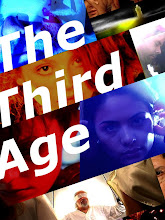Michael Richards, Borat and the Limits of Shock Comedy
Over the past couple of days, Seinfeld star Michael Richards has gotten into a lot of the trouble for his racial invective filled rant at a comedy club. All the info is here, including videos of both the moment itself and the incredibly awkward six minute apology on Letterman. Obviously he said some really awful things, and I doubt he'll ever be able to shake the stigma of this, nor should he. If you're a public figure, no matter what you actually feel, you just don't say this stuff in public.
When I first heard about the story, I saw it as just another Mel Gibson type situation. The quotes from articles were horrible, and at first, his apology is a fairly standard "I didn't mean it" kind of thing. However, as he goes on, he talks about what led him to say these things. Basically, as a performer, he uses a lot of free association to move deep into character. His comedy is entirely based on stripping off self consciousness and getting lost in the material.
If you watch the video, it becomes more clear that what he's saying is to some extent a performance. After the initial comments, he steps back and says something like "Ooh, this shocks you?" After this, he goes even further and loses the audience in the process. The whole thing raises the question of where performance ends and where actual racism begins. If he's trying to maintain authority as a performer, he's going to want to prey on his hecklers and use their comments to his advantage. So, he plays on the easiest target, their race. The question is, is he entering into the character of a racist at this moment or is it is his own beliefs coming out?
I can't say for sure, but I think it's interesting that this controversy occurs only a few weeks after everyone is lauding Borat for supposedly exposing the below the surface intolerance of Americans. With Borat, Baron Cohen enters into a character and utters a consistent stream of hate speech, directed at blacks, Jews and others. To the people in the film, there's no indication that Borat is a construction, or that his beliefs are any less than genuine, he is using this character to create a safe space for people to express their hate.
But, at the same time, he is saying very hateful things. What makes his constant jokes about Jews different than what Richards does here? The obvious answer is the distinction between Borat and Cohen. Every review seems to mention the film's antisemitism, qualified with a remark about Cohen's own Orthodox background. It's easy for us to laugh at Borat because we're aware that he is poking fun at this point of view. The actual man is far removed from the character.
However, with Richards, there's no clear line between the character and the performer. It's quite possible that in that moment, he saw entering this racist persona as the best way to grab the crowd's attention and counter the hecklers. At first, he seems to enjoy the fact that his words have created such shock, and only after does the crowd turn on him. If you read Borat without the distance of knowing he's a fictional character, it'd be very easy to have the same reaction.
In the end, I think the difference in reaction comes down to three things. One is insider status. Seinfeld itself actually commented on this phenomenon when they had Tim Whatley convert to Judaism for the jokes. An oppressed group can make fun of themselves without consequence, but it's a lot tougher for someone outside the group to make those same jokes. Richards crosses an unacceptable social line by invoking actual hate speech.
The second major difference is the tone. Borat gets away with a lot of what he does because he's such a genial guy. There doesn't seem to be genuine malice behind what he's saying, whereas Richards, by his own admission, is fueled with rage and as a result, stops being funny. On Seinfeld, Kramer could get away with a lot of insensitive things because there was an innate innocence/naivete to the character, and Richards had none of that on stage.
I'm not going to pass judgment on Richards, but it's clear he crossed a line in the performance. I suppose that's the danger of being such a free performer, that you'll channel something you don't want out into the world, and I'd imagine we're not going to see him doing standup again.
But, so much of what is hailed about today's great comedies are their willingness to tackle taboo subjects. Shows like Arrested Development and The Office frequently use race in their humor, and it's notable that at first the audience on Letterman treats Richards' apology as a bit, with sporadic laughter until Jerry says "Stop laughing, it's not funny." Apparently, the show was taped before the scandal broke, and if you didn't know it was real, it'd be pretty easy to think that Richards' apology was a gag, pushing awkward comedy to its limits. Just the other day, I was saying the American Office didn't work because it wasn't painful enough. Well, this apology was painful and not very funny at all.




No comments:
Post a Comment